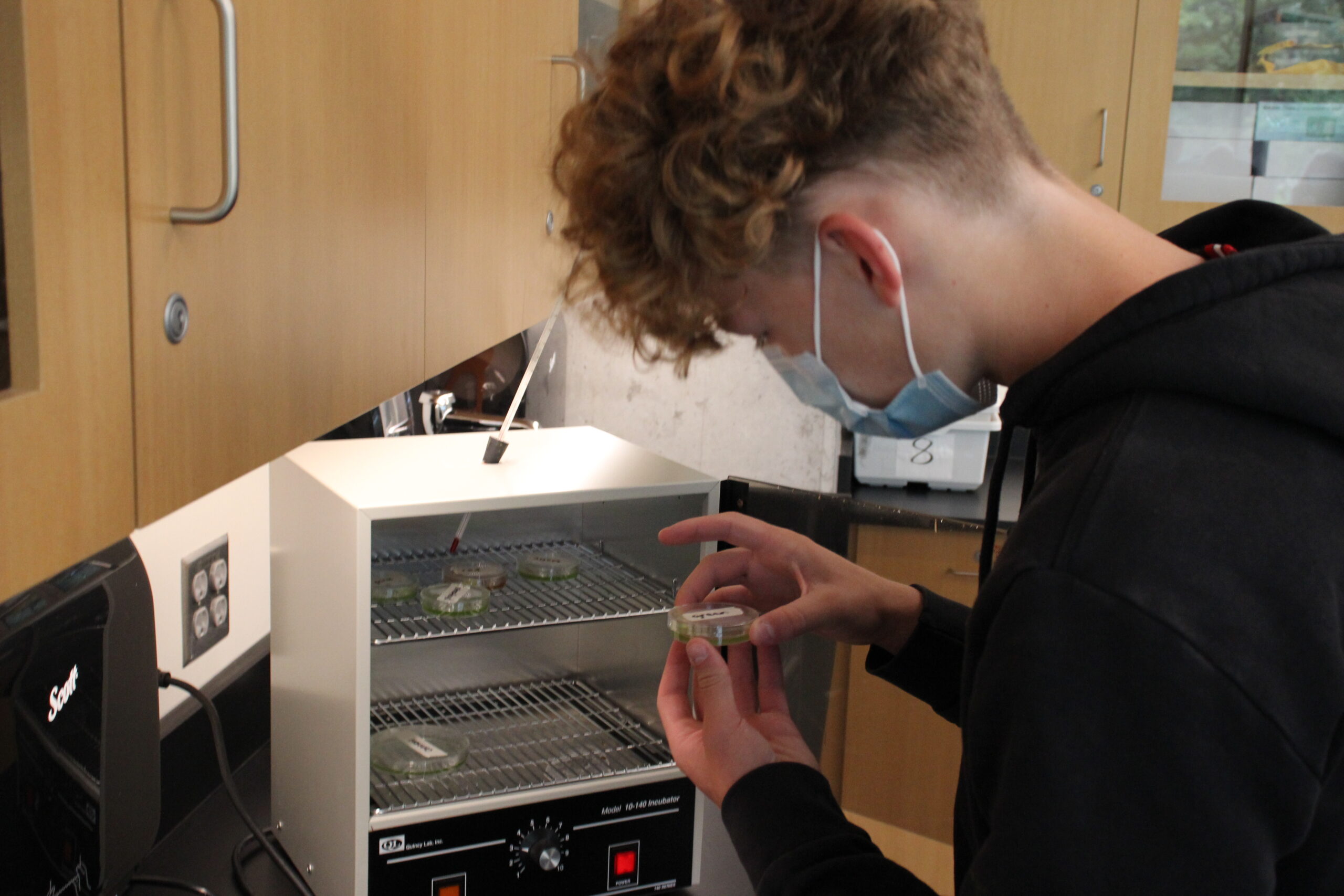Russia invades Ukraine, retreats from ISS
Minnehaha’s annual space-station project may take new directions in future years
Testing shark skin on bacteria growth, growing calcium carbonate crystals and trying to revive dried algae have all been experiments worked on and sent into space by the Minnehaha ISS (International Space Station) team.
But with recent news on Russia withdrawing from the ISS and the removal of the Space Station in upcoming years, what does the future of this class look like?
Growing Algae
The 2021-2022 Minnehaha Academy International Space Station experiment will grow Chlorella Algae and study how it converts carbon dioxide to oxygen in space. This year’s Minnehaha Academy ISS team created the experiment, which was sent to the International Space Station (ISS) on April 27.
“We chose to grow algae because collecting data on carbon dioxide consumption could help solve many of the current issues they are having on the ISS,” said ISS team member Lars Ramgren.
One of the growing problems on the ISS is the high rising levels of C02.
“Since air doesn’t circulate in microgravity compared to that on Earth, CO2 can build up in parts of the ISS,” Ramgren explained. “This build-up can be hazardous to the astronauts on the ISS. Finding ways to get rid of this CO2 buildup could be critical in future space projects.”
With this team’s project coming to a close, concerns about the future of the class rise as many obstructions have started to appear.
Russia/Ukraine Impact
On Feb. 24, Russia invaded Ukraine, starting a war whose impact has stretched not only across the planet but also into space. Since 2000, when people first moved in, the ISS has generally managed to stay out of Earth-bound politics – but the Ukraine conflict could change that. Recently Russia has stated that it will end cooperation with western countries over the ISS until sanctions are lifted.
For decades, the U.S. and Russia have collaborated in space.
“From the 1975 Apollo-Soyuz Test Project, which took place mid-Cold War, to the continued partnership in the International Space Station program, the two nations have worked together in space amidst political upheaval
on Earth,” stated a report on Space.com, a media website focusing on space-related news.
“By design, the ISS relies on Russia working together smoothly with 14 other nations,” the report stated. “Part of the station is Russian-built and operated by cosmonauts. The NASA-led side of the station provides electrical power to the Russian side, while Russia provides the orbital boosting that is occasionally needed to stop the ISS from falling to lower altitudes and disintegrating in Earth’s atmosphere.”
The possibilities of how Russia’s withdrawal could affect the ISS are still unclear as news about the Russia and Ukraine invasion changes daily. However, with this recent end in ISS cooperation, missions with Russian-led instrument teams, such as the neutron detector on its Curiosity Mars rover could be impacted.
Along with political issues impacting the Space Station, NASA has announced that the station will be decommissioned in 2031. The ISS will be creasing back to Earth before splashing down in a remote part of the Pacific Ocean.
This allows Minnehaha to send their research to space for at most only nine more years. With many obstacles in the way of the class, Minnehaha students and faculty have many hopes for the future of the ISS class.
The Future of the Class
“This has been something on my mind for a while now,” said ISS team advisor and physics teacher Tim Swanson. “What will we do next if we aren’t able to send our research to space?”
One possible option is an engineering class that finds a real-world problem and designs a project over a semester trying to further understand the topic. Minnehaha has explored this possibility in the past by introducing a sustainable garden project.
“We’re always on the lookout for new ways to use engineering for practical applications,” said Swanson. “It was an idea of continuing to create an engineering project that solves a problem outside of the ISS specific program. This type of class is just something down the line we’re going to need when we stop sending our work to space.”
Another option, Swanson said, is to still focus on microgravity projects but attempt to complete the testing on Earth.
Ramgren is also curious about what the future of the class will look like.
“It will be cool to see what the school comes up with as a replacement for the class,” he said. “Being part of this prestigious class gives students an incredible opportunity to expand their interest in engineering. Given how much interest the ISS class gets from the students, I bet Minnehaha will try to implement more similar type engineering classes to the course registration options.”
The ISS class has drawn students to change their course work to meet the requirements so that they can be accepted into the class. Students will even take certain classes and extracurricular courses like 3D print and coding lessons so that they have an increased chance of being accepted.
“Will we have another class that students try to adjust their whole academic direction to get into? It’s hard to say,” exclaimed Swanson.
Competition has its benefits.
“I would love to see that though,” he said, “because I feel that when you have a class that draws interest like that, not only do you end up with a motivated group of students that are ready to take on any task, but then they are also learning things not because they are told to, but because they have a genuine interest for it. I’m excited to see the future of engineering at Minnehaha.”

